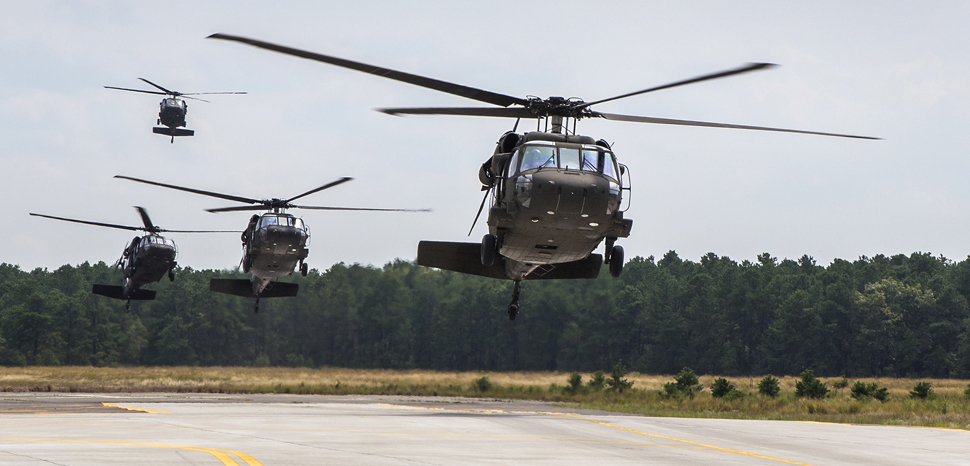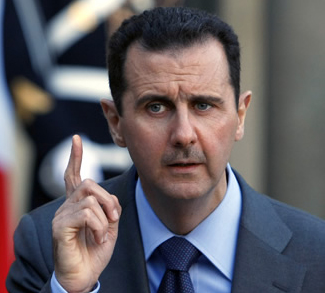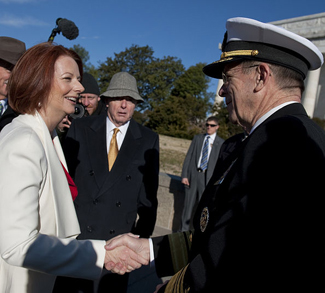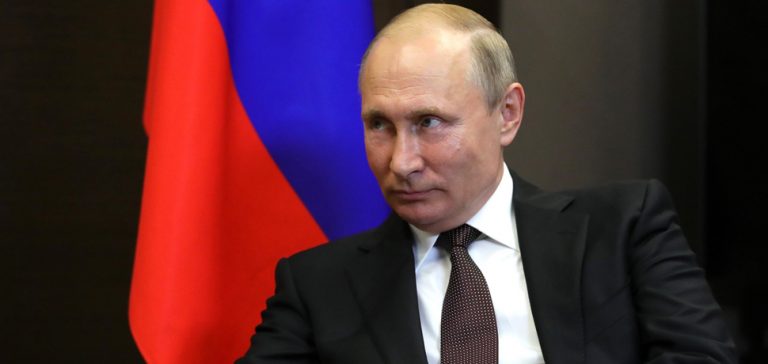The Russian city of Sochi hosted the first ever Russia-Africa Summit and Economic Forum in late October. One important development of this high-profile meeting was that Russian defense companies declared their interest in expanding their footprint throughout Africa by increasing weapons sales.
This is an important issue that deserves more analysis since, given the numerous and complex armed conflicts throughout Africa, a plethora of extra-continental actors, be them governments or defense industries, are continuously attempting to obtain new contracts with African states. Without a doubt, Africa is very much open for business when it comes to weapons transfers, and the world as a whole is looking to profit.
Who is selling?
Given that Africa constitutes 54 countries, the newest nation being South Sudan, a complete analysis in which specific defense systems and platforms each country is acquiring would be too exhaustive. Hence in the interest of brevity, we will only provide some noteworthy deals that illustrate the situation.
Generally speaking, there is no clear pattern regarding who is selling defense technology to African countries, as we are talking about suppliers from across the globe. Databases like the UN Register of Conventional Arms (UNROCA) and the Stockholm International Peace Research Institute (SIPRI) demonstrate this widespread list of suppliers. Certainly, if country X is under sanctions by other nations (namely the U.S. and European states), said government is more likely to turn to other potential suppliers from non-Western areas. Moreover, the African defense industry is also growing, particularly in Algeria, Nigeria, and South Africa, and there have already been instances of intra-regional weapons transfers.
Some recent systems transfers include: A delivery of weapons to the Central African Republic in late September as part of a UN-approved program to train and reequip the army as the country emerges from years of violence. The weapons were provided at no cost to the struggling nation.
In October of 2019, an agreement was reached with Nigeria that will have the Russian Federation provide a dozen Mi-35 attack helicopters to assist the Nigerian military in its effort to deal with the Boko Haram insurgency and other regional threats.
It should be noted that Russia is not the only power that is conducting sales in Africa at this point in time. In mid-November, it was announced that Senegal has ordered three offshore patrol vessels from the French Shipyards Piriou. Earlier this year the country received a shipment of M4A1 carbines from the United States as well. Meanwhile, Burkina Faso has placed an order for one C295W transport aircraft from Airbus. Finally, another country that is upgrading its air force is Ethiopia, which has ordered as many as 12 G 120TP turboprop training aircraft from H3 Grob Aircraft.
In order to attract customers, African states organize defense expos where continental and extra-continental defense companies can display their products and systems. Case in point, Ivory Coast will hold the 2021 version of the ShieldAfrica international exhibition for security and defense.
Controversial suppliers
One country that has made some interesting sales in Africa is Serbia. One of their clients happens to be a country that human rights activists have a laser-like focus on due to its deteriorating internal situation: Cameroon. There have been several campaigns over the last couple of years designed to convince Belgrade to stop supporting the regime of long-time President Paul Biya.
But is this the only nation in Africa which is a client for Serbian arms sales? There have been reports that surplus armor has been sold to Ethiopia. Furthermore, nations such as Kenya, Nigeria, and the Democratic Republic of the Congo have been clients for small arms, ammunition, and other items.
Serbia is not the only country to be sanctioned in the past that has ultimately found in Africa an opportunity to raise sorely needed funds. One nation that has proven adept at circumventing sanctions against it by supplying weapons to African clients is North Korea. One of their partners in several projects has been Uganda. Despite persistent denials by Kampala, this is a relationship that should be scrutinized.
In 2017 several other countries including DR Congo, Tanzania, Angola, Zimbabwe, and Eritrea came under UN scrutiny after being listed in a UN panel of experts report as also purchasing weapons from North Korea. This was prior to the stalled nuclear negotiations with the United States. This represents a program that the North Koreans could resume to show their displeasure with the breaking down of these talks. A panel of experts report from March 2019 shows that the country was also providing arms to Sudan. Since there has been a change in government in Khartoum, and the long-time leader Omar al-Bashir is finally out of power, it’s an open question as to how the new government will address this partnership.
Case study: Turkey in Africa
Turkey is an important case study, as Turkish firms have slowly been increasing their presence in Africa. Even more, “Turkey’s Presidency of Defence Industries (SSB) published a strategic plan for 2019–23 on 4 December aiming to increase domestic content of defense equipment to 73% and exports to about USD10.2 billion by 2023,” according to Jane’s Defence Weekly. It is expected, as we will demonstrate in this brief case study, that Ankara will focus on Africa as a potential source of clients for Turkish-made defense systems and platforms.
Recent recipients of transfers of Turkish equipment include Ghana, which has acquired Cobra and Cobra II armored vehicles, produced by the Turkish firm Cobra. In July, it was announced that “Turkish armoured vehicle manufacturer Katmerciler has received a $20 million export order from an undisclosed African country.” The system that will be transferred is the company’s Hizir armored vehicle. Moreover, the Albayraklar Group, is attempting to sell electroshock weapons to South Africa.
According to a United Nations report on weapons sales to Africa, “Turkey’s defense industry was active in 2018, exporting 40 wheeled armored personnel carriers to Burkina Faso, 20 to Chad, three to Ghana, six to Mauritania, and 25 to Senegal. It is believed that most of these were Otokar Cobras. Turkey also exported 183 7.65 mm handguns and 400 semi-automatic pistols to Burkina Faso, 100 semi-automatic small and light pistols to Cameroon, six 9 mm handguns to Ghana,” among other transfers of light weapons. A chart generated by the Stockholm International Peace Research Institute highlighting weapons transfers from Turkey to African states similarly mentions the delivery of armored vehicles to Burkina Faso and Senegal in 2018.
Turkish firms participated in the ShieldAfrica 2019 weapons expo in Ivory Coast this past January, including the aforementioned Otokar. The company “has sold vehicles to a number of African countries, most recently Burkina Faso. It was revealed to be operating Cobra armored vehicles in December last year. Algeria, Mauritania, Nigeria, Rwanda and Tunisia are amongst African Cobra operators – the type has found widespread acceptance by militaries around the world,” explains DefenceWeb.
Additionally, the Turkish military is using African-made systems. Specifically, “Turkey’s Navy will upgrade its Preveze class submarines with SERO 400 periscopes, which will be manufactured by Hensoldt Optronics in Germany. Major assemblies will be sub-contracted to Hensoldt Optronics in South Africa, continuing decades of successful cooperation on this front,” explains DefenceWeb in August, 2019. The contract is reportedly worth 40 million Euros.
Apart from weapons transfers, Ankara aims to deepen relations between African and Turkish militaries. For example Turkish troops regularly participate in African military exercises, like Obangame Express 2019 in Nigeria. Moreover, the Turkish military has a base in Mogadishu, Somalia’s capital, aimed at training Somalian troops. In mid-2019, it was announced that “Turkey has started construction of a factory in Mogadishu, Somalia, that will produce uniforms for the country’s military, giving it a capability it has not had in over two decades.”
These military-related activities throughout Africa are part of a wider strategy meant to turn Turkey into an influential player in African affairs. Indeed, one of the foreign policy pillars of President Recep Tayyip Erdoğan is for Turkey to cement its presence throughout Africa. Certainly, nowadays with issues like tensions with NATO, a rapprochement with Russia, the war in Syria, the woes of the Turkish economy, and Erdogan’s murky future after losing the municipal elections in 2019, it is debatable if Africa will continue to be a region of interest for Ankara in the 2020s.
With that said, it is undeniable that in recent years, Erdogan has devoted significant time to this effort. The Turkish Ministry of Foreign Affairs explains how “being an Afro-Eurasian state, Turkey’s policy of opening up to Africa ….is the product of a process with strong historical and cultural aspects. It is, foremost, the expression and natural result of the firm feelings of friendship and partnership between Turkish and African peoples.” Recent commentaries on Ankara-African initiatives highlight the Turkish base in Mogadishu, the 41 embassies that Turkey has in Africa nowadays, and the fact that “state-run Turkish Airlines now flies 52 routes from Istanbul to 33 different African countries, when it only flew to 14 in 2011.” Countries like Somalia and Sudan, given their location by the Horn of Africa, as well as Libya, due to its natural resources, are of particular interest to Ankara.
As a caveat to this case-study, it is necessary to mention that, at the time of this writing, President Erdogan has ordered that Turkish troops will go to Libya to support the UN-backed government there as a new civil war rages on. This is a strong signal of how far the Turkish leader is willing to go to protect his government’s interests in Africa.
Final thoughts
The authors of this analysis have sought to explain the variety of suppliers that sell defense equipment to African states. We are talking about firms across the world, including African-based companies, in addition to a plethora of other defense-related activities like the donation of surplus equipment, joint partnerships between defense companies, military training activities, among other programs.
While other analyses tend to focus on the usual subjects, namely the US, China or Russia, we believe that Turkish defense relations with Africa, including weapons sales, deserve greater attention by the international research community. These ties are particularly significant as Ankara has, in recent years, sought to increase its overall footprint in Africa.
As conflicts and instability continues in various hot spots throughout the continent, and defense and security forces seek new, modern and lethal (and sometimes non-lethal) equipment, there will be a never-ending list of potential suppliers to African nations.
The views expressed in this article belongs to the authors alone and do not necessarily reflect those of any institutions with which the authors are associated.




